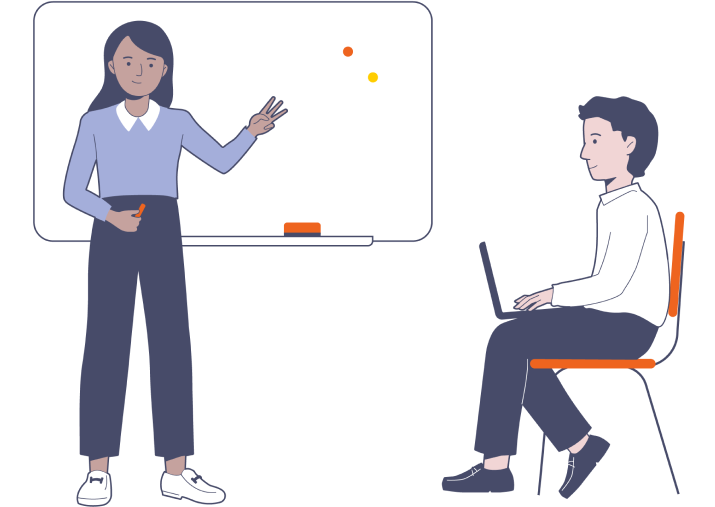
How to create expert teachers, according to Peps Mccrea
Resources|8th May 2024

Director of Education — Steplab

PD Specialist — Steplab
There are multiple ways to define expert teaching – the question is what to do with the analysis.
We sat down with Peps Mccrea, Director of Education at Steplab and award-winning teacher educator, designer, author, to chat about expert teaching. What is it, how to achieve it – and what all this means for professional development (PD) in schools?
Why does expert teaching matter?
“Compared to things like changing class sizes or restructuring things or performance-related pay,” says Peps, “the positive effects of a good teacher are way, way, way bigger than any of those other kinds of interventions or changes you can invest in.” Though the ability or context of the child is a factor, according to current research, “we now know teacher effectiveness is the biggest lever we have at our disposal for improving the learning and life chances of the students we serve.”
How to create new experts?
There are multiple ways to define expert teaching – the question is what to do with the analysis. Expert teachers might see the classroom differently, using extensive knowledge and experience to plan several steps ahead. But Peps warns not to get drawn into observable performance characteristics that don’t directly help others improve their teaching. To help teachers acquire expertise, you need to “start with the knowledge base they have… that means developing what they know.”
Experience limitation
Experience alone can get you far – but not all the way to ultimate expertise. Improvement is difficult, explains Peps, without variation and some kind of feedback as well. Otherwise, “you hit a ceiling” – meaning teachers plateau and struggle to improve further. Even when an experienced teacher begins to vary their practice, it’s challenging to isolate the impact of a particular teaching strategy on student learning. “There are so many factors at play,” says Peps. Some aspects of expert teaching are just not intuitive. That's where evidence comes in.
Evidence-informed teaching
Educational research can isolate some of the variables – “the chaos of the classroom” – allowing us to see “even small effects we wouldn’t be able to discern in the classroom.” All this can lead to principles and in turn, best bets of how to act in the classroom.
“When we combine evidence with experience, we create a powerful precondition for expertise to develop.” Peps Mccrea Director of Education, Steplab
Peps emphasises that the most powerful force for developing expertise comes from combining evidence with experience. Effective experiences, which often includes some kind of feedback mechanism such as those within instructional coaching, is crucial.
Powering-up PD
Peps points to the past 8-10 years, during which researchers like Mary Kennedy have helped change the paradigm around PD. “We have a much more robust understanding of what needs to be in place,” he says, namely “the active ingredients for professional development to actually lead to improvements in teacher expertise”. Which is why, at Steplab, we’re interested in the best way of packaging up as many of those essential ingredients of effective PD as in our responsive coaching model.
Towards tested teaching approaches
From his broad perspective on changes in education, Peps identifies three areas in which the teaching profession might become more evidence-informed:
- 1.Strengthening the research pipeline: More high-quality research will allow for clearer cause-and-effect conclusions about what works in the classroom.
- 2.Investing in research translation: Bridging the gap between research and practice is crucial. Teachers need clear and actionable translations of research findings presented in a way that considers the realities of the classroom.
- 3.Closing the feedback loop: Evaluating how research translates into classroom practice then allows researchers to understand implementation challenges, and refine their work accordingly.
“Teaching is an incredibly complex, sophisticated task,” admits Peps. “So improving it and researching it is even more complex and sophisticated.” But the ongoing process is a cause for optimism, signalling greater advancements to come for teacher expertise and most importantly: concrete benefits for students.
If you'd like to talk through how to develop more expert teachers in your trust or school using Steplab, get in touch.


